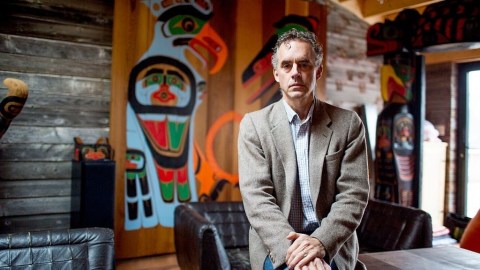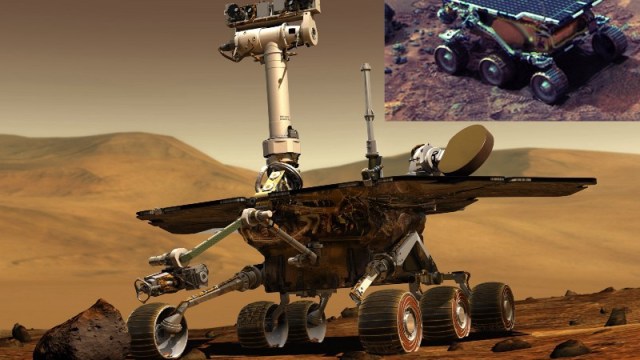Is Jordan Peterson’s carnivore diet really healthy?

- Jordan Peterson began eating an all-beef diet after his daughter’s health problems cleared up.
- The human microbiome requires a diversity of nutrients and bacteria, making such a diet questionable in the long-term.
- Neuroses caused by elimination diets could prove to be unhealthier than the ailments they purportedly cure.
Cats are uniquely positioned in the animal kingdom. While they can digest vegetables and other foods — ours love licking the caps of olive and coconut oils, and don’t get me started on cheese — these killers were designed to exclusively consume meat. Obligate carnivores need plenty of it for optimal health.
Humans, relatively weak predators for most of history, are equipped with different digestive systems. For example, we need fiber. Yet we’re adaptable: we can survive on a stark diversity of nutritive sustenance. From Arctic whale blubber feeders to the equatorial ital vegetarian diet, we turn most anything into food, for better or worse.
Vegans eschew any animal product whatsoever, up to and (sometimes) including honey. At the opposite end of the spectrum are carnivore dieters, or, as their preference has become known, carnivory. Forget low-carb; this clan eats no carbs.
The diet’s most famous proponent is probably Jordan Peterson, the Canadian professor who already boasts of a long list of controversial topics in his resume. Inspired by his daughter, Mikhaila, who reportedly recovered from a series of autoimmune problems stemming from juvenile rheumatoid arthritis. According to The Atlantic,
“Some unknown process had triggered her body’s immune system to attack her joints. The joint problems culminated in hip and ankle replacements in her teens, coupled with ‘extreme fatigue, depression and anxiety, brain fog, and sleep problems.'”
At 15, Mikhaila began an elimination diet, which is arguably the most reliable means for discovering food allergies. Starting with a popular target, gluten, she kept going until all that was left was “beef and salt and water.” Noticing his daughter’s progress, Peterson began the diet, which he claims helped him shed 50 pounds in seven months.
Joe Rogan – Jordan Peterson’s Carnivore Diet Cured His Depression?
Not that he’s completely happy about it. While he stopped snoring, overcame autoimmune conditions, shed himself of psoriasis and gingivitis, slept better, cured leg numbness, and threw out his antidepressants, the diet is allegedly “a little hard on your social life.”
I concur. When I first met my wife, she tried, gently, as people courting do, to explain why vegans, which I was at that time, are difficult to eat with. Like Peterson, switching to a ketogenic diet cleared up a number of long-standing health conditions. The dietary move also allowed my wife to be less gentle and more honest, the best course of action when discussing emotional issues. Some vegans are difficult to eat with.
Yet so are carnivorists, apparently.
Humans evolved by ingesting and digesting whatever nourishment was at hand. Trial and error — watch enough clansmen die from eating that type of mushroom, don’t eat it. An archaic scientific brain emerges: learning through self-reflection. The other perished; I must not follow.
Yet with so many decisions now available we’ve become paralyzed. With everything right here in this aisle, I’ll choose nothing, or just one thing so I don’t have think too much about it. Yet thinking always comes, it’s what our brains do, with a caveat: it requires justification. This food becomes the focus, so let’s make of it a religion.
How Your Gut Influences Your Mental Health: It’s Practically a Second Brain | Dr. Emeran Mayer
Carnivory certainly has its acolytes. Health benefits certainly follow a severe change of diet, if you’re eliminating the source of your ailments. Modern humans are carbohydrate junkies. The macronutrient exploits our brain’s reward system, especially in the form of sugar. What was once a rare source of pleasure has become the major staple of our diets. Cut that out and you’ll be healthier.
What replaces carbs matters. The ketogenic diet holds up in the short-term, but evidence that it’s healthy over time is sketchy and sparse. Removing the constant assault by sugar on your microbiome is essential. Relying on beef and salt as the only forms of sustenance, however, looks equally foolish. University of Chicago’s Microbiome Center faculty director, Jack Gilbert, breaks it down.
“Your body would start to have severe dysregulation, within six months, of the majority of the processes that deal with metabolism; you would have no short-chain fatty acids in your cells; most of the by-products of gastrointestinal polysaccharide fermentation would shut down, so you wouldn’t be able to regulate your hormone levels; you’d enter into cardiac issues due to alterations in cell receptors; your microbiota would just be devastated.”
Let me clarify the part about vegans being difficult. Food is a shared experience. The ritual of eating is an important bonding mechanism. There’s a reason samosas are Indian and pizzas are Brooklyn: cuisine lives at the intersection of environment and culture. Cultures spring up, in part, from the food they produce and share. It is arguably our most sacred ceremony, as it is what gives us life.
Chefs devote their lives to exploring an infinite palette of flavor profiles. The very few that make their way onto your plate consist of what they believe to be the height of their passion. Then the person you’re dining with sends it back because it has soy, or butter, or whatever fad toxin is being eliminated that day.
Joe Rogan – Carnivore Diet Fixed Mikhaila Peterson’s Arthritis
We should applaud the creative genius and strong will many chefs displays when branching out into plant-based restaurants. Diversity is the mark of a powerful imagination, one of our brain’s unique qualities among the animals. Simultaneously we must recognize the neuroses too much choice has created. An animal that starves itself due to the psychological chains of orthorexia is a creature suffering from the ravages of affluence. Let’s not pretend otherwise.
Which can be as unhealthy as a gluten allergy, if not more so. While Mikhaila’s body went into remission for eating a few dashes of pepper on a steak for three weeks (or her father’s month-long remission from a bit of apple cider vinegar), she can freely drink bourbon and vodka. As James Hamblin writes,
“The idea that alcohol, one of the most well-documented toxic substances, is among the few things that Peterson’s body will tolerate may be illuminating. It implies that when it comes to dieting, the inherent properties of the substances ingested can be less important than the eater’s conceptualizations of them — as either tolerable or intolerable, good or bad. What’s actually therapeutic may be the act of elimination itself.”
What is likely toxic to the body is the idea that a particular food is toxic to the body. A 2018 study showed that just thinking you didn’t have a protective gene against obesity changed the physiological response of volunteers, causing them to be inclined to eat more. Just as sexual arousal begins in our brains, not our loins, our connection to food is in our heads more than our bellies.
In 12 Rules For Life, Peterson writes that “Order, by contrast, is explored territory.” The contrast was chaos, unexplored territory, “the domain of ignorance itself.” As Hamblin notes regarding this extreme dieting, restriction brings with it order. Yet what it lost — the pleasure of sharing meals and exploring the world’s unique contributions to cuisine — does not seem worth the sacrifice.
—
Stay in touch with Derek on Twitter and Facebook.





